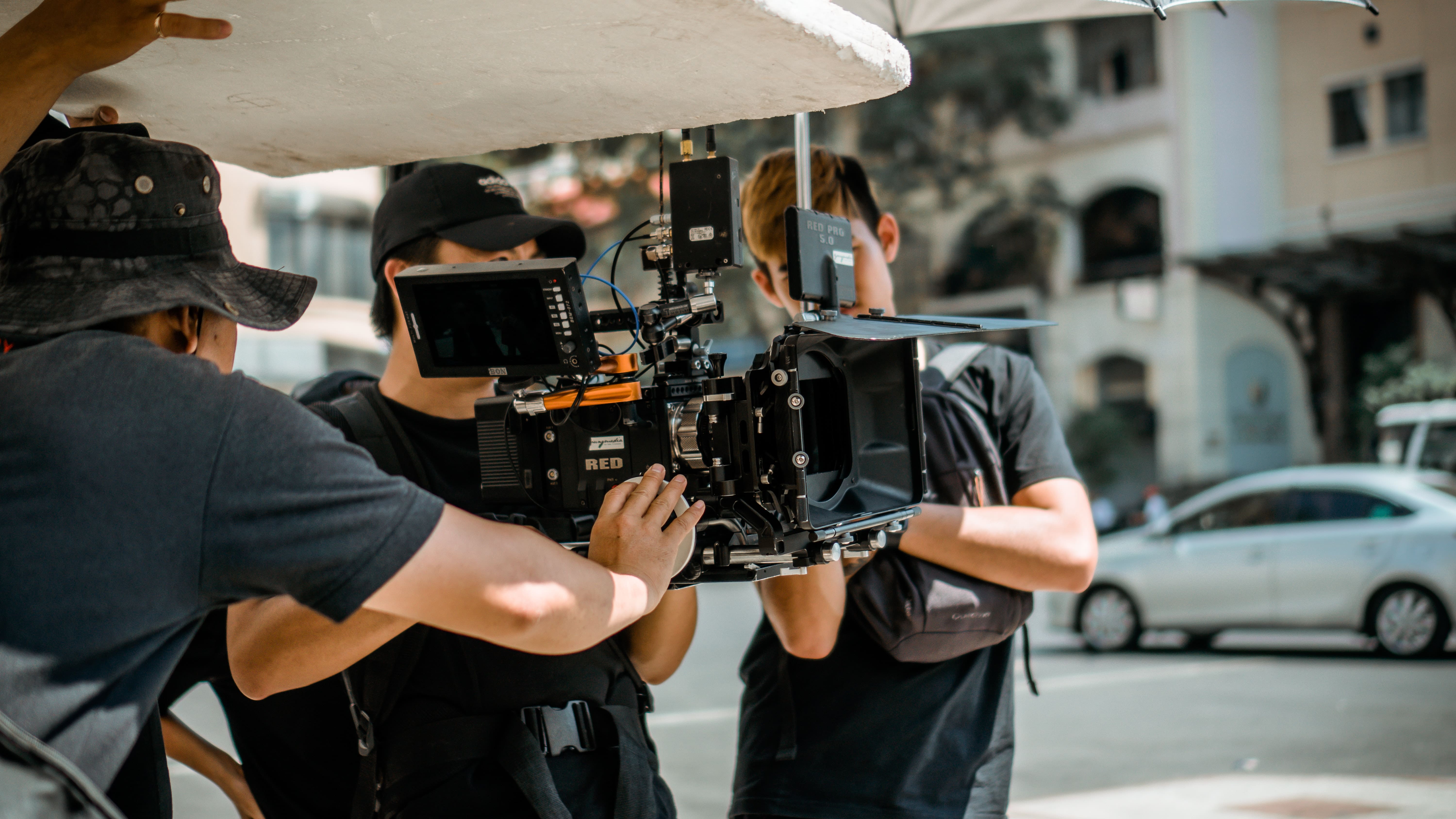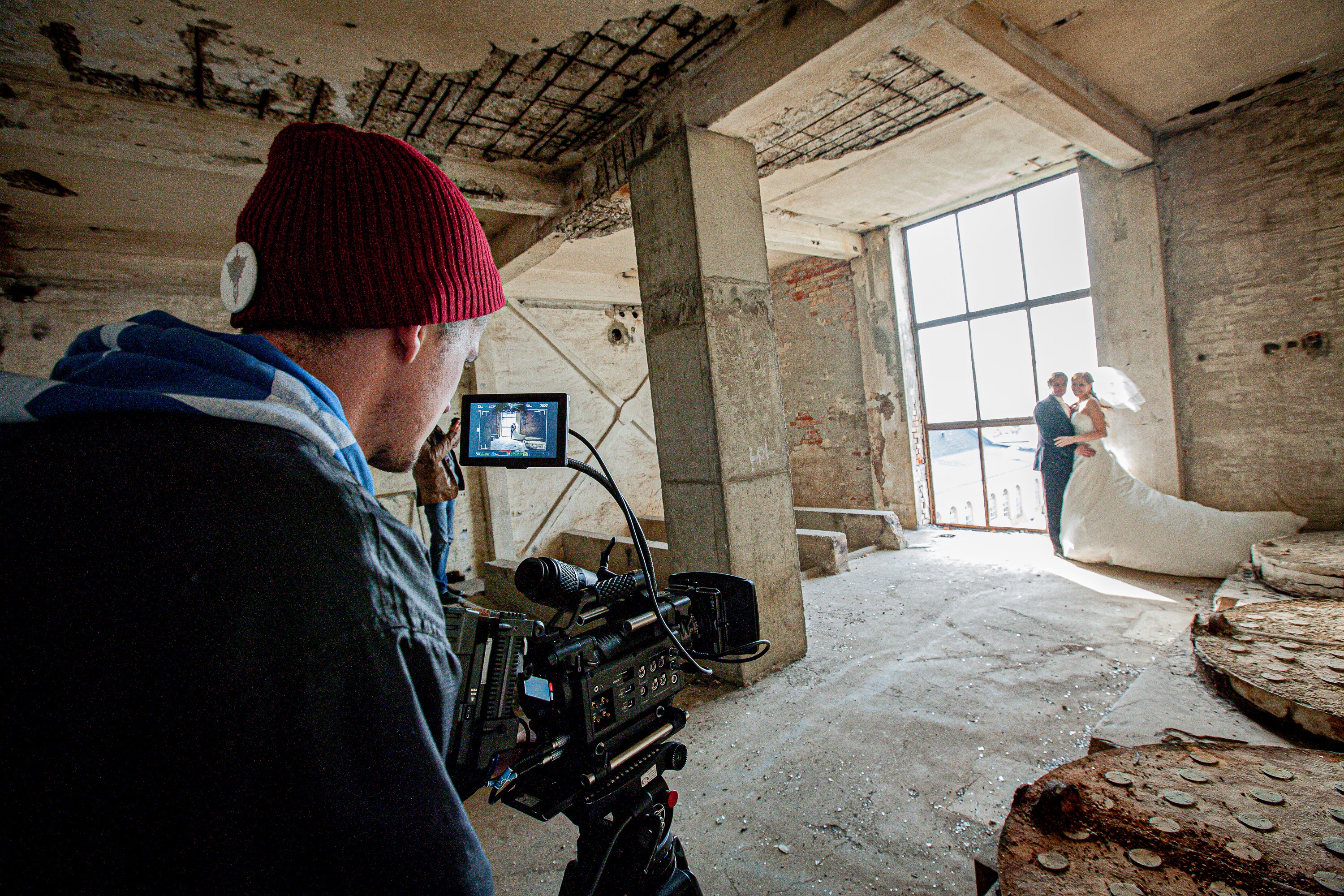If you need a video project done, there are two main categories of professionals you should hire: a videographer and a cinematographer. A good videographer knows how to capture what he sees. He has a decent understanding of framing, and composition. While a good cinematographer knows how to tell a story with lighting, sound, camera and how to successfully get your message across. Though both are video professionals and have some similarities, there are key differences between them which will ultimately decide which creative is the best candidate for a project. Since many people use these terms videographer and cinematographer interchangeably, please note that this explanation is a generalization and is not absolute.
What is a cinematographer?

The term Cinematographer, is reserved for those who've acquired special skills and knowledge in the art of filmmaking, but this isn't limited to feature films. Cinematographers can work on TV Commercials, documentaries, advertising agencies, music videos, or within a larger crew as DP's (directors of photography). Cinematographers need to have a firm understanding of all aspects of film production, including: pre-production, post-production, lighting equipment, sound, writing, directing and the art of storytelling. Here's a behind-the-scenes look at a set with a professional video crew and cinematographer.
What is a videographer?

A videographer normally works as a one-man band. They are hired to capture events and highlight the essence of the moment. Often times they're covering events, music festivals, behind the scenes, social media content or any other intimate gatherings. Typically, working alone or with a small team, they are less involved in the creative process, because of their limited control, flexibility, and art direction with the actual client. Their primary focus is to capture the "moment" while remaining relatively unseen by attendees.
Cinematography vs videography - what's the difference between the two?
Although both work in video production, they differ in their approach to tasks, equipment, and expertise. Videographers shoot videos with a single purpose in mind, capturing the moment before it passes them by. While cinematographers aim to create a story utilizing tools like psychology, color theory, lighting and sound - all to impress and influence audiences. While this isn't a definitive list, here is a general overview of their key differences.

Their Video Production Approach
Videographers usually work in a single-person team, so they become jack-of-all-trades and have a basic understanding of lighting, sound, and video. Cinematographers are usually a part of a larger team (in the industry, this team is often called a "film crew"). They are responsible for the overall "look and feel" of the project, so they have to have a keen understanding of industry equipment and narrative storytelling in order to capture the story. Which is why they are surrounded by so many departments, like lighting, sound, art, and set decorators. Videographers are a more affordable option because you're only hiring one person to manage all factors that influence a final project.

Style of Work
Cinematography is a profession that requires a lot of skill, expertise and practical experience. A cinematographer needs to have a solid knowledge of lighting techniques, camera operation, audio recording, editing, and storyboarding. Cinematographers are normally part of bigger budget projects like TV commercials, corporate video production, brand videos and testimonial videos. Pretty much video projects that have more at stake.
Videographers are a great option for lower-stake projects, like commencement speeches, event recaps, small business promos, social media content, business updates or any intimate event. The pre-production is little to none because the event is already coordinated.

Why do Videographers Call Themselves Cinematographers?
Now that we know the major differences between a “cinematographer” and a “videographer”, why do people use these terms interchangeably? With better gear readily available to the consumer, many videographers start using the title "cinematographer" to describe themselves, not knowing of the differences. As a result, there is an increasing amount of confusion surrounding these two professions and thus, the lines become blurred. One is not necessarily better than the other, it just depends on the type of project you're looking for.
How to know whether you need a videographer or a cinematographer?
Though videographers and cinematographers are both in video production, they are very different jobs. Videographers have to be able to think quickly on their feet and go with the flow. A work day for a cinematographer is different, it's more thoughtful. The day is already planned out and everyone knows what shots will be captured and at what time. The goal isn't just to "capture" a moment in time, but to recreate a beautiful shot that is full of intention. If you want to get a feel for what kind of projects each profession might handle best, consider the following:
- Are you looking to solve a business problem like, increasing sales or brand awareness?
- Do you want to persuade an audience?
- Are you looking to inspire, educate, or inform viewers?
If you've answers yes to either of these, your best bet is a cinematographer.
- Are you looking to capture an event?
- Need something shot quickly for social media?
- Are you looking for something more cost-effective with lower stakes?
If so, a videographer is most likely your best option.
Consumers nowadays are becoming more demanding, especially when it comes to video productions. You need to be clear on the type of video you wish to produce. Do you wish to capture events in documentary style or with additional effects such as background music, cinematography or other visual elements? What kind of message do you want to convey? Are you looking for a corporate video? A promotional video? An educational video? A YouTube series? All of these will require different approaches and tools. If you want to create a video that is informative, then you need to plan carefully. You should consider the following questions before deciding on a videographer: How much time do you have? Are you willing to spend money on equipment? Do you want an engaging story? Is there any special event that needs filming? If you already have a rough idea of what you want to film, you might not need to hire a professional. However, if you are still unsure about the subject matter, you may want to start looking at different options.
Cinematography is a craft that requires artistic skills and a keen eye. A cinematographer will help you tell your story in a cinematic fashion. Tasca Studios offers a unique service to its customers. It ensures that every business gets the video production services it needs to capture and record by professional cinematographers or videographers in our team. This means that when you need a TV commercial, Brand Video or social media content we're here to serve you.
Hopefully you have a clearer idea of the similarities and differences between a videographer and a cinematographer. If you plan to hire a videographer, it is important to ask them about their experience and expertise. You may also want to consider asking for references. A good videographer will usually have 2-3 years of experience under their belt. If you are looking for a professional cinematographer, you should check out their portfolio, and if their video production company has garnered any accolades. Here are some top tips to consider if you're looking to hire a video production company.
If you're in the South Florida area, and you need help with corporate video production services, we'd be happy to help.- just send us your project details!
.png)





.webp)
.png)
.png)
.png)
